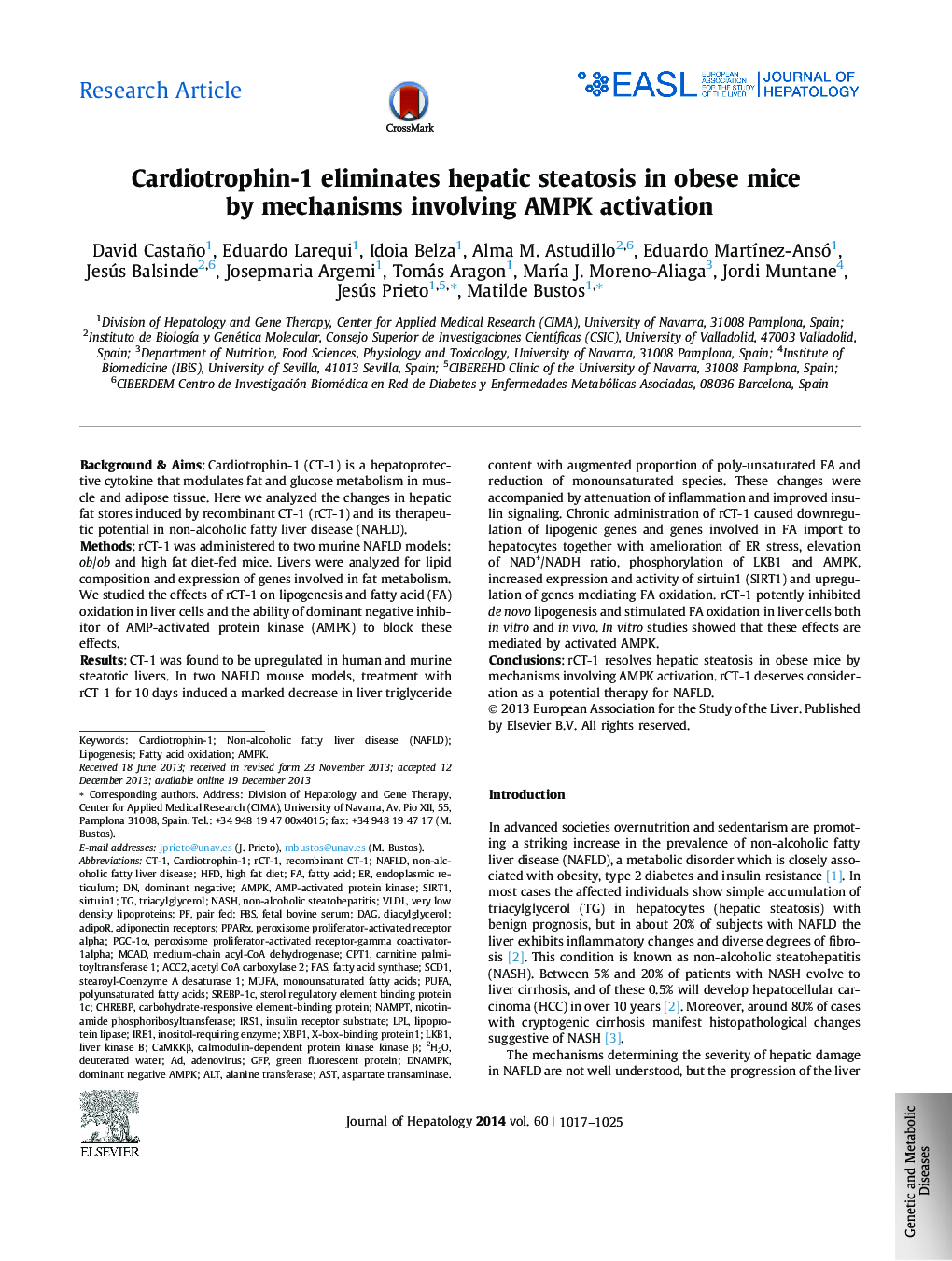| Article ID | Journal | Published Year | Pages | File Type |
|---|---|---|---|---|
| 6103596 | Journal of Hepatology | 2014 | 9 Pages |
Background & AimsCardiotrophin-1 (CT-1) is a hepatoprotective cytokine that modulates fat and glucose metabolism in muscle and adipose tissue. Here we analyzed the changes in hepatic fat stores induced by recombinant CT-1 (rCT-1) and its therapeutic potential in non-alcoholic fatty liver disease (NAFLD).MethodsrCT-1 was administered to two murine NAFLD models: ob/ob and high fat diet-fed mice. Livers were analyzed for lipid composition and expression of genes involved in fat metabolism. We studied the effects of rCT-1 on lipogenesis and fatty acid (FA) oxidation in liver cells and the ability of dominant negative inhibitor of AMP-activated protein kinase (AMPK) to block these effects.ResultsCT-1 was found to be upregulated in human and murine steatotic livers. In two NAFLD mouse models, treatment with rCT-1 for 10Â days induced a marked decrease in liver triglyceride content with augmented proportion of poly-unsaturated FA and reduction of monounsaturated species. These changes were accompanied by attenuation of inflammation and improved insulin signaling. Chronic administration of rCT-1 caused downregulation of lipogenic genes and genes involved in FA import to hepatocytes together with amelioration of ER stress, elevation of NAD+/NADH ratio, phosphorylation of LKB1 and AMPK, increased expression and activity of sirtuin1 (SIRT1) and upregulation of genes mediating FA oxidation. rCT-1 potently inhibited de novo lipogenesis and stimulated FA oxidation in liver cells both in vitro and in vivo. In vitro studies showed that these effects are mediated by activated AMPK.ConclusionsrCT-1 resolves hepatic steatosis in obese mice by mechanisms involving AMPK activation. rCT-1 deserves consideration as a potential therapy for NAFLD.
